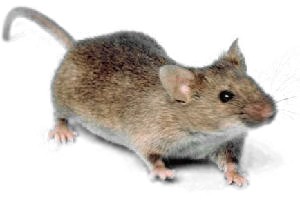Human Brain Organoids Thrive in Mouse Brains
By Ashley Yeager,
The Scientist
| 04. 16. 2018
Mouse brains make nice homes for human brain organoids, researchers report today (April 16) in Nature Biotechnology.
Brain organoids, also known as mini-brains, are tiny clumps of brain cells grown from stem cells that researchers are using to investigate the neural underpinnings of autism and other neurological disorders. But the organoids typically grow in culture for only a few months before they die, limiting their usefulness as models of real brains. Transplanting the three-dimensional clumps of human brain tissue into the brains of mice allows the organoids to continue to develop, sprouting life-sustaining blood vessels as well as new neuronal connections, the new study reports. The work takes a step toward using brain organoids to study complexities of human brain development and disease that can’t be investigated with current techniques. Brain organoid transplantation may even one day offer a treatment option for traumatic brain injury or stroke.
“Although organoids are a great advance in human neuroscience, they are not perfect. They are missing blood vessels, immune cells and functional connections to other areas of the nervous system,” Jürgen Knoblich...
Related Articles
By Diaa Hadid and Shweta Desai, NPR | 01.29.2026
MUMBRA, India — The afternoon sun shines on the woman in a commuter-town café, highlighting her almond-shaped eyes and pale skin, a look often sought after by couples who need an egg to have a baby.
"I have good eggs,"...
By George Janes, BioNews | 01.12.2026
A heart attack patient has become the first person to be treated in a clinical trial of an experimental gene therapy, which aims to strengthen blood vessels after coronary bypass surgery.
Coronary artery bypass surgery is performed to treat...
By Staff, ScienceDaily | 01.05.2026
Scientists at UNSW Sydney have developed a new form of CRISPR technology that could make gene therapy safer while also resolving a decades-long debate about how genes are switched off. The research shows that small chemical markers attached to DNA
...
Following a long-standing CGS tradition, we present a selection of our favorite Biopolitical Times posts of the past year.
In 2025, we published up to four posts every month, written by 12 authors (staff, consultants and allies), some in collaboration and one simply credited to CGS.
These titles are presented in chronological order, except for three In Memoriam notices, which follow. Many more posts that are worth your time can be found in the archive. Scroll down and “VIEW...




